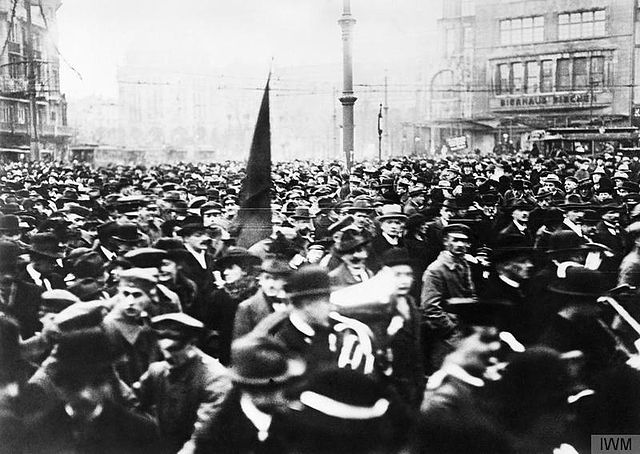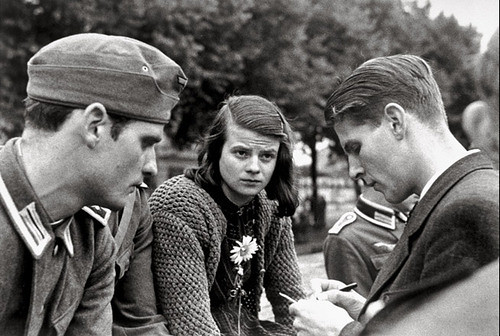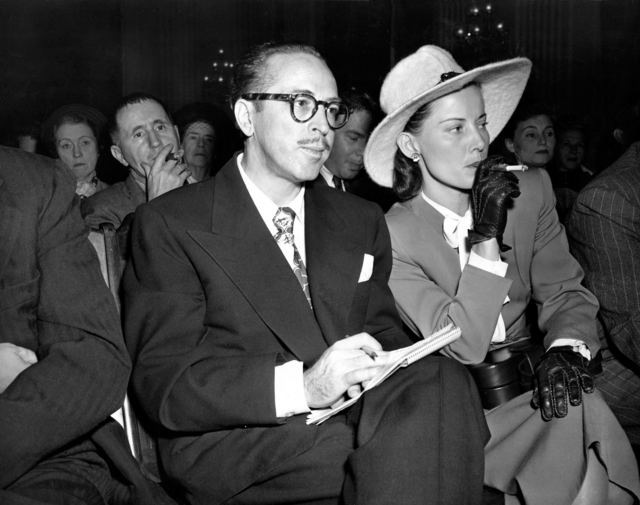In 1918, the German people were war-weary. Around 1.7 million soldiers had been killed in the First World War, and during the “Turnip Winter” of 1916–17, 750,000 civilians died of starvation. By this point, the war had been lost, and conscripted soldiers and sailors simply wanted to go home. On 23 October, sailors in Kiel mutinied. After a week of demonstrations and civil disobedience, a mass meeting of 20,000 people elected a sailors’ council.
Inspired by the Kiel revolt and by the 1917 Russian Revolution, a popular uprising spread throughout the country. There was a general strike in Berlin. On 7 November, from the balcony of the Imperial Palace, Karl Liebknecht proclaimed: “Comrades, I proclaim the free German socialist republic … The reign of capitalism, which turned Europe into a swamp of blood, is broken.” Two days later, the Kaiser abdicated. The chance of the Russian Revolution expanding into a leading industrial state was very real.
German capitalism was saved by the SPD, originally founded as a Marxist party by followers of Marx and Engels. By 1914, the SPD had supported war credits. As revolution brewed, it tried to look both ways. On 7 November, as Liebknecht was declaring a workers’ republic, SPD leader Philipp Scheidemann proclaimed a bourgeois parliamentary republic. In October 1918, Prince Max handed over power to Friedrich Ebert, and SPD politicians joined a new government in an attempt to preserve ruling-class control in Germany.
German capitalism was saved by the SPD, originally founded as a Marxist party by followers of Marx and Engels. By 1914, the SPD had supported war credits. As revolution brewed, it tried to look both ways. On 7 November, as Liebknecht was declaring a workers’ republic, SPD leader Philipp Scheidemann proclaimed a bourgeois parliamentary republic. In October 1918, Prince Max handed over power to Friedrich Ebert, and SPD politicians joined a new government in an attempt to preserve ruling-class control in Germany.
In March 1920, Freikorps officers—many of whom would later form the core of Hitler’s Nazi Party—attempted to restore dictatorship in the “Kapp Putsch.” This, in turn, was defeated by a general strike. Workers’ militias were formed, and the revolution was not fully suppressed until 1923. Even then, it remained a reminder that anti-capitalist resistance in Germany is possible. As Luxemburg wrote shortly before her death: “Tomorrow the revolution will already raise itself with a rattle and announce with fanfare to your terror: I was, I am, I shall be.”




